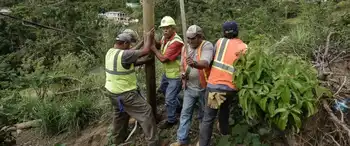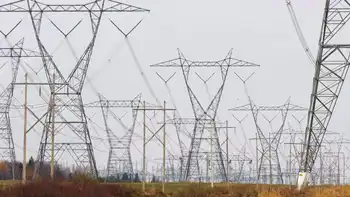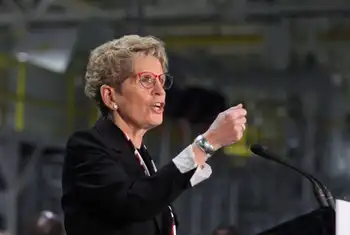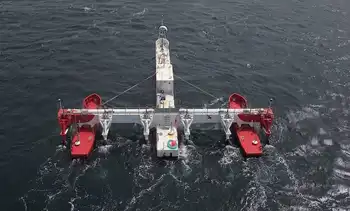Man held after tonnes of e-waste exported to Africa
The 49-year-old man, a Nigerian national, was detained on suspicion of the illegal export of electronic waste from Britain in an operation by the Environment Agency and the Metropolitan Police as part of a wider crackdown on a trade which leaves thousands of tonnes of broken and contaminated electrical goods dumped in the developing world each year.
The investigation by The Independent, Sky News and Greenpeace showed how a television broken beyond repair was shipped from a municipal waste site in Hampshire to an electronics market in Lagos, Nigeria's most populous city. The TV set, which is hazardous waste under British and European law and could not have been exported legally, was bought by BJ Electronics (UK) Ltd and taken to its east London warehouse then sold for export despite being unusable.
Tonnes of defunct electronic equipment sent from Britain to countries including Ghana and Nigeria ends up each year on waste dumps where "scavenger children" pick through the detritus looking for bits of wire, circuit board and cathode-ray tube. The precious or heavy metals in the components can be extracted by setting light to their plastic and glass coatings but that produces a dense cloud of potentially toxic chemicals.
British investigators have arrested 12 people this year in swoops on suspected illegal exporters after inquiries by The Independent found that waste electronic and electrical equipment (Weee), much of which is deposited by householders at municipal dumps, was being bought by middlemen and sent abroad rather than being safely recycled in the UK.
An Environment Agency (EA) spokeswoman said: "As part of an operation by our national environmental crime team, a 49-year-old man who is the director of BJ Electronics (UK) Ltd was detained in Loughton, Essex, on suspicion of the illegal export of Weee." Companies House records show that BJ Electronics (UK) Ltd, which has its main warehouse in Walthamstow, east London, has a 49-year-old sole director, a Nigerian national named as Joseph Benson.
When contacted by The Independent, Mr Benson denied he had been arrested and insisted his company followed the relevant regulations. He said: "I have done nothing wrong. I operate a legitimate business and we operate within the rules. We dispose properly of anything that is broken."
There are about 200 companies and individuals in Britain who tour municipal waste sites buying up waste electronic and electrical equipment. Under European law, equipment which is still functioning can be legally exported to developing countries in West Africa to Southeast Asia, where there is a thriving trade in second-hand computers and electronic devices such as DVD players. But any item which is no longer working is classified as hazardous waste and cannot be sent outside the EU.
Only 450,000 tonnes of the estimated one million tonnes of e-waste produced in Britain each year is recycled within the UK, leaving more than 500,000 tonnes unaccounted for. Government agencies admit that thousands of tonnes of electronic waste is leaving Europe each year packed in cargo containers to the developing world.
The EA said it was joining forces with environmental protection agencies abroad via Interpol to step up the fight against gangs responsible for the illegal dumping of electrical waste. Investigators are increasingly targeting a new breed of "waste tourist", criminal fixers who come to Britain on tourist visas, spend a few weeks buying up waste electronics from operators and arranging for the illegal goods to be packed into cargo containers and exported. The fleeting nature of the visits means that catching these fixers is extremely difficult, the EA said.
Lord Chris Smith, chairman of the agency, said: "Investigations have found that each year thousands of tonnes of waste electrical equipment are shipped from Europe and America to developing countries to be stripped down – often by children in appalling conditions – to extract valuable metals such as gold, copper and aluminum. This is unacceptable. It is essential that we work with our counterparts in other countries to share intelligence and stamp out the growing problem of illegal waste exports."
Related News
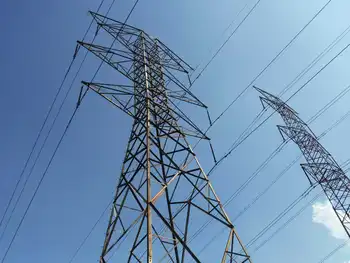
U.S. power companies face supply-chain crisis this summer
WASHINGTON - U.S. power companies are facing supply crunches that may hamper their ability to keep the lights on as the nation heads into the heat of summer and the peak hurricane season.
Extreme weather events such as storms, wildfires and drought are becoming more common in the United States. Consumer power use is expected to hit all-time highs this summer, which could strain electric grids at a time when federal agencies are warning the weather could pose reliability issues.
Utilities are warning of supply constraints for equipment, which could hamper efforts to restore power during outages. They are also having a…

